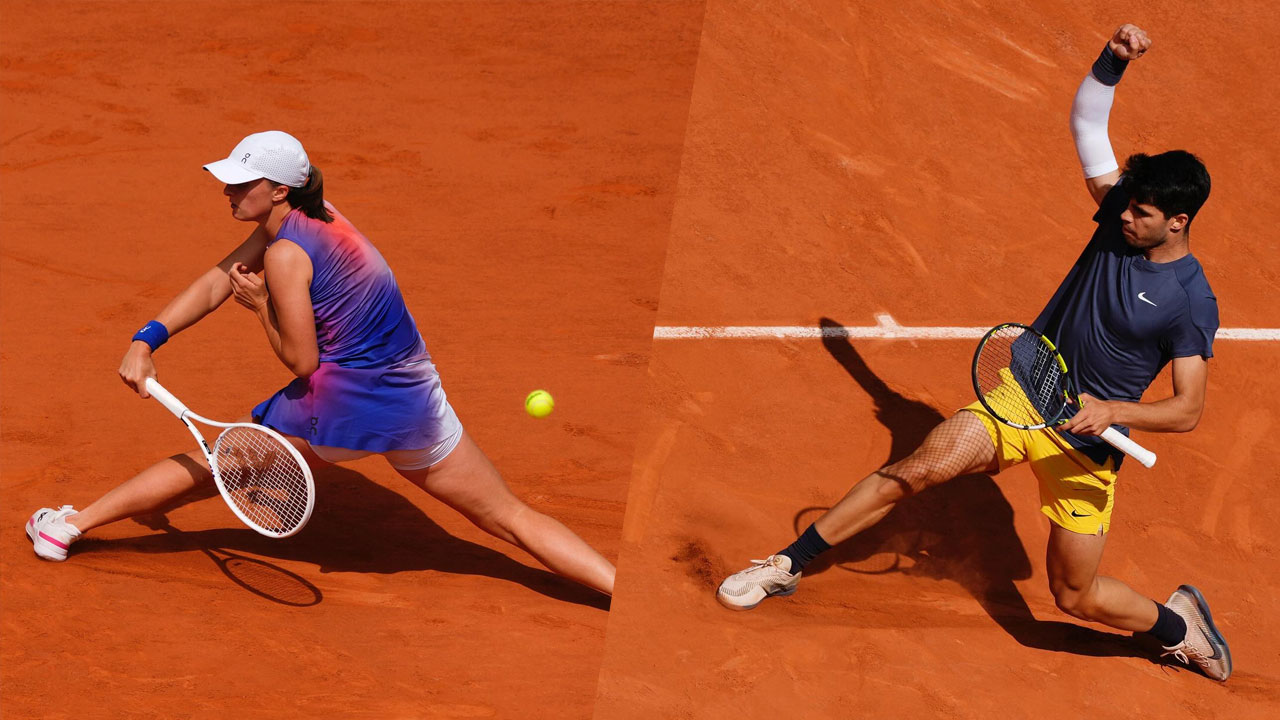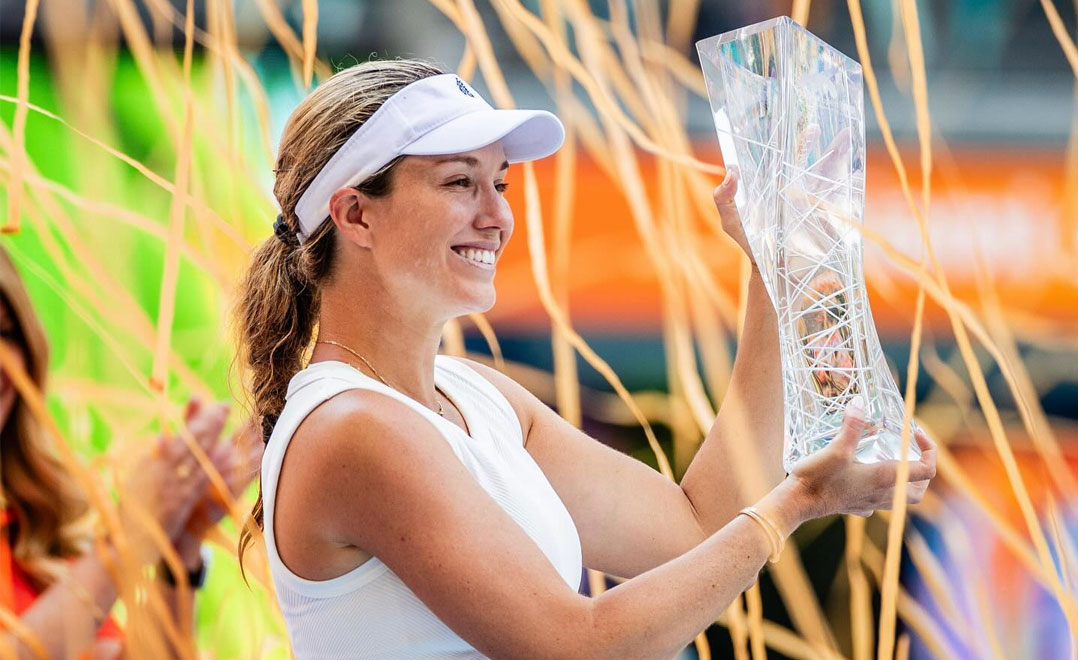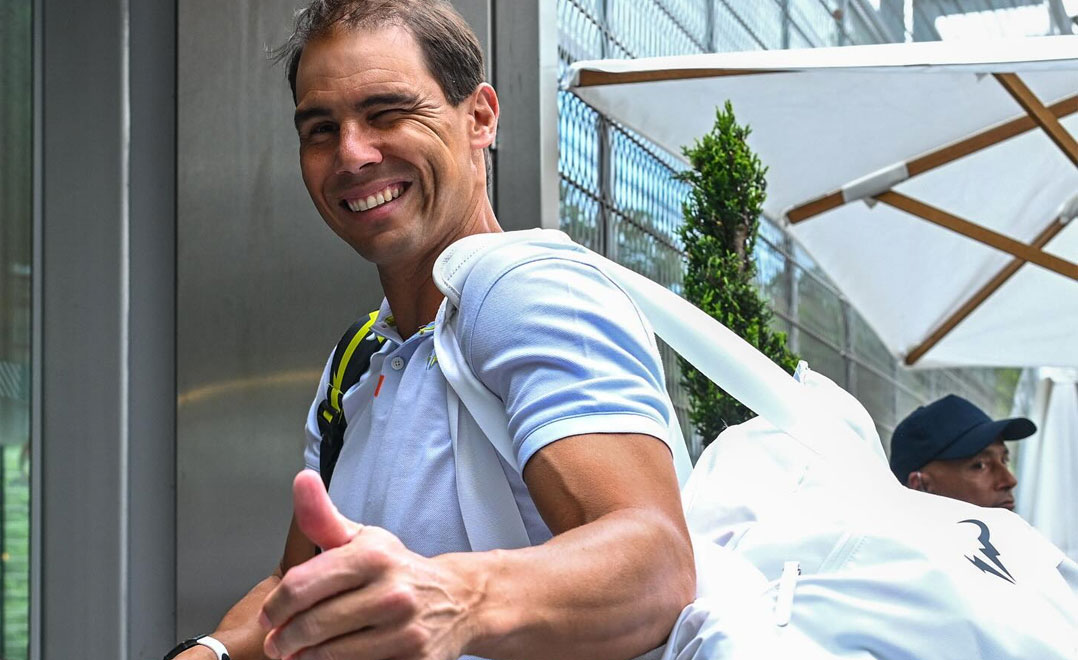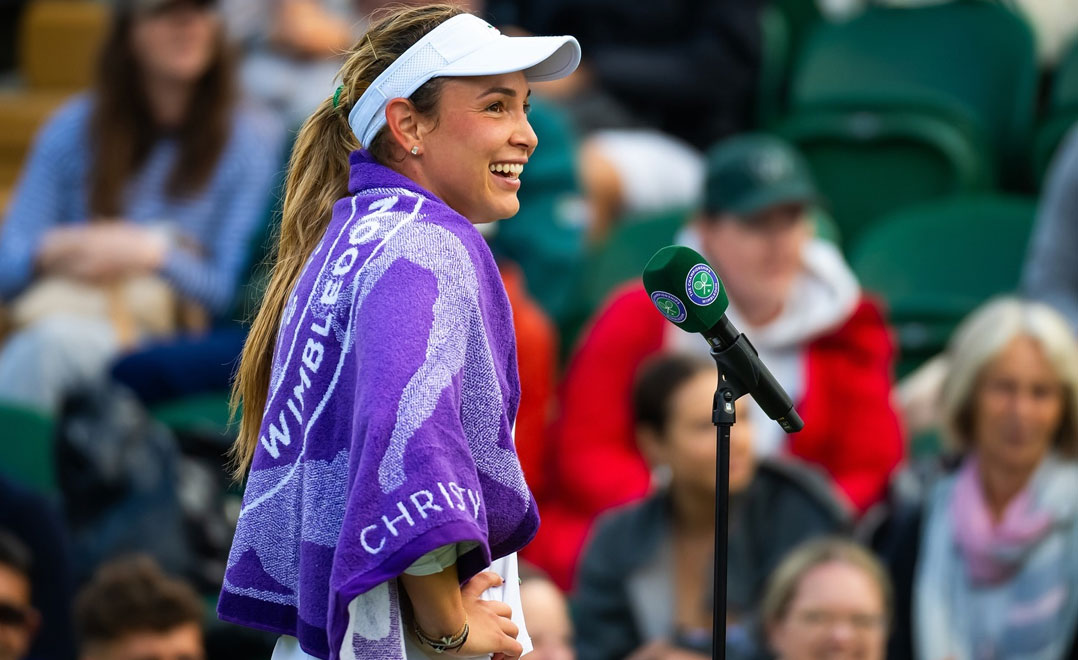Two weeks of Parisian clay have blown by, and the tennis landscape is fully refreshed with the dust settled.
It was a peaceful overthrow, but the game has new guardianship.
On the men’s side, the long-expected changing of the guard is official. The game belongs to Carlos Alcaraz and Jannik Sinner.
The opening salvo came in last year’s Wimbledon Championships when Alcaraz defeated Djokovic. As tectonic as that felt, it wasn’t the official moment. The old guard still reigned … barely.
But this tournament settled it. With Rafael Nadal’s first-round exit and Novak’s withdrawal in the quarterfinals, tennis experienced its first Grand Slam semifinal without the presence of Roger, Rafa, or Novak for the first time in twenty years.
If you think that felt, weird, try this on for size: Novak’s subsequent knee surgery means Wimbledon might be the first Grand Slam draw that won’t feature one of those three in 24 years, given that Nadal has hinted at skipping as well.
It’s mind-boggling to consider a Grand Slam with zero members of the Big Three, but here we are.
Sinner and Alcaraz currently own three of the four Slams between them, as well as the top two spots in the world rankings, respectively. Djokovic finds himself in a position to play the foil, which he actually has years of experience doing. Don’t count him out, but don’t call him the overwhelming favorite anymore either.
Meanwhile, the women’s game has one owner: Iga Swiatek. There may yet be a Big Four, but it’s a Big One for now.
Tennis is in good hands.
Carlos Alcaraz’s Surface Slam
Carlos Alcaraz wrapped his arms around his first Coupe des Mousquetaires.
He is undefeated in Grand Slam finals (3-0), and has now won the U.S. Open, Wimbledon, and the French Open. That covers hard courts, grass, and clay courts: the Surface Slam, if you will.
At 21 years old, he’s the youngest man to do that.
It’s significant because it indicates an all-around game. He’s not a specialist on any surface. He’s dangerous on all of them. Extremely dangerous.
There is nothing missing from his game. It is as complete as it gets. He can be beaten, sure, but he won’t lose because he can’t adapt to a certain type of play.
He knows it and his team knows it.
Alcaraz is also extremely coachable, and this makes him even more dangerous. Young players usually lack wisdom, which can only come from experience unless you listen to your coaches who have already gained that wisdom.
Alcaraz’s coach, Juan Carlos Ferrero—former French Open champ and world No. 1 himself—dialed up a brilliant game plan for Zverev.
If you watched the final and thought Zverev wasn’t playing well, you were right, but you may have missed why. It was because Alcaraz kept changing the pace of his shot, mixing in lots of high, deep balls to keep Zverev from getting a rhythm and from getting any power on his shots.
Most players are unwilling to hit high topspin shots because of the perceived cheapness of that style of play. Nobody wants to be a moonballer. But at this level, you don’t need to prove that you can smash the ball. We know you can. You need to find ways to disrupt your opponent.
Moonball-caraz. A visual depiction.
— Gerald Lim (@dlareg49) June 10, 2024
Ton of variety from Carlitos yesterday with the moonballs🌚 out in force again against Zverev. Peak height ~5.4metres.
P.s. Tracking data is missing a fair bit of points but I think this provides a sufficient representation. pic.twitter.com/LrDxPl3o0i
Zverev is at his best when he is ripping groundies back and forth. Alcaraz can do that, but it isn’t a winning strategy against Zverev over five sets. Zverev will get dialed in a tee off on you. He wants the pace, so why give it to him?
Instead, loop a bunch of high spinny shots deep in the court. Now Zverev can’t lock in his timing and has to generate his own power. This is physically and mentally frustrating.
Zverev was well aware, too. “He changed his tactic a lot in the fifth set,” Zverev explained in his post-match presser. “He started to play a lot higher, a lot deeper, for me to not create as much power.”
Given Alcaraz’s physical abilities, it’s borderline unfair for him to have a powerhouse mind game as well. Plus the humility to win ugly on the big stage. That signals a lack of ego.
Carlos Alcaraz is a nightmare for other players, and a joy for the game.
Embed from Getty ImagesCredit to Zverev
He’s on the doorstep of his first Grand Slam title. He is putting in disciplined work and has instilled the proper attitude with regard to personal expectations and the requisite work to accomplish his goals.
He didn’t sound devastated after this match. He was grounded and level-headed about the loss, beyond gracious in defeat, emotionally accepting, and ready to continue the grind. He trusts his current path, which bodes well for his chances to get back to this stage and finish the job.
He still has many years ahead of him to get it done. Don’t bet against him.
Unbeatable Iga
The world rankings say there are second- and third- and fourth-ranked players behind Iga Swiatek, but really there should be a few empty slots below her. That’s how far ahead she is of the competition.
Mathematically, she’s a full 3707 points ahead of new No. 2 Coco Gauff, who supplanted Aryna Sabalenka from that position.
Put another way, Iga has a nearly two Grand Slam lead on her next closest rival (2000 points per Slam). That’s outrageous. For context, only 200 points separate Gauff and Sabalenka.
Clay is certainly Swiatek’s best surface, and she swept the last three tournaments—Madrid, Rome, and Paris)—to become only the second woman in history to do that.
She is being compared to Rafa on clay, which is fair but probably still early. But four Roland Garros titles at age 23 will draw those comparisons.
She has five Grand Slams, but only one away from the dirt.
The next evolution of her game will be improving across the other surfaces. She’s good on hard courts, but not dominant like clay. She’s yet to find her footing on grass, with her best result being a quarterfinal appearance at Wimbledon last year.
Can she do it this year? Sure, but the big concern is her mental reserves. To win three straight tournaments like she did is taxing on the mind and body. It took seven weeks of intense focus, doing all the right things, making all the right decisions, showing up for all the training and recovery sessions, eating all the right foods, and on and on (and On).
Onward, Iga.
Embed from Getty ImagesCredit to Paolini
If you were told that an Italian would make the French Open final, would you have picked Jasmine Paolini to be that Italian?
Didn’t think so.
This might be a once-in-a-lifetime result for Paolini.
The 28-year-old is making the most of her recent run of form, winning Dubai earlier in the year and now making the finals of a Grand Slam for the first time in her career.
She was outclassed by Swiatek (no shame there), but her showing at Roland Garros vaults her up to No. 7 in the rankings, marking her first time in the top 10.
Enjoy the ride, Jasmine. Lots of fun experiences are coming your way. Your new career is just getting started.
Farewell Rafa
He didn’t win the French Open this year, so he snuck off and won an amateur golf tournament instead. He’ll be just fine.
World No. 1 Jannik Sinner
Alcaraz may have the trophy (and a big win over Sinner in the semis), but Jannik Sinner walks away as the world’s new No. 1 ranked player, finally displacing Djokovic after nipping at his heels all year.
Jannik Sinner earned this ranking. There will be no asterisks and no controversy about his position atop the rankings.
The new ranking will make the loss to Alcaraz go down a little easier. We know Sinner is not big-headed, so the No. 1 crown probably won’t feel too heavy on his head. Let’s see what he does with it for the rest of the year. Alcaraz will be coming for it, no doubt.
Check out this group of former No. 1s welcoming Jannik into the club. One of the coolest things in a while. Old guard to new guard.
Tennis has the best community of people. Magical to see so many legends pay their respects. The Kafelnikov appearance was especially cool.
— Extra Topspin (@extratopspin) June 10, 2024
Congrats @janniksin. Well earned.
Reflex Volleys
Sabalenka and Ruud got raw deals
Or raw chicken, because they both suffered from nauseous stomachs in their QF and SF matches, respectively, effectively nullifying their ability to compete.
Would they have won if they were at 100%? Maybe, maybe not, but to lose at that stage b/c of a bad plate of food is tough to swallow.
French Success
The French Open doesn’t always deliver a lot of homecourt heroes, but several people made some hay this year.
Richard Gasquet and Gael Monfils both scored electric early round victories, even though their runs stopped in round two (each man lost to an Italian).
The unexpected success stories were Corentin Moutet, who bulldozed his way to the fourth round before falling to Sinner, and Varvara Gracheva, a newly christened French citizen, who also made the fourth round, scoring the biggest upset of the first round by defeating (6) Maria Sakkari.
Italian Success
Sinner goes to number one in the world and Paolini goes to the finals and number seven in the world.
Paolini nearly pulled off a twofer, too, as she also made the doubles final with fellow Italian Sara Errani.
Life is good for Italian tennis fans right now.
Au Revoir, Paris
Merci beaucoup. It was an incredible two weeks.
See y’all on the grass.



